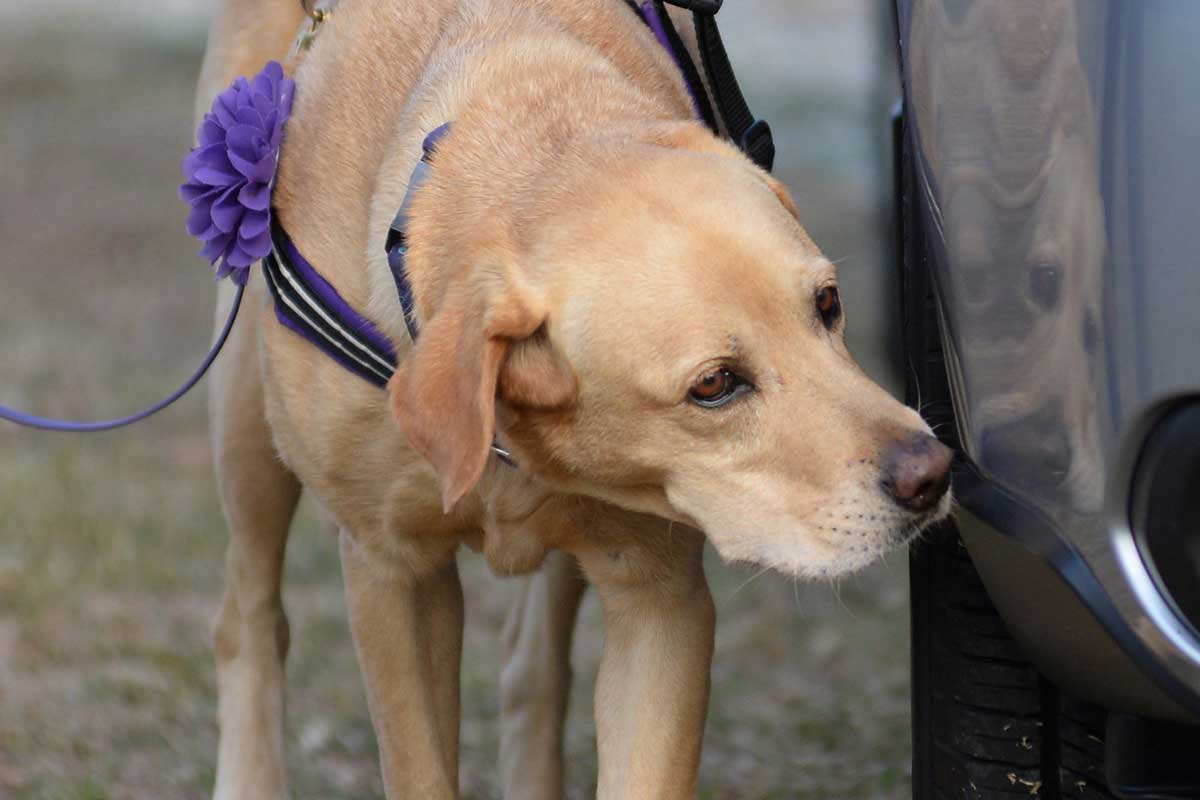I’ve long thought dog sports were good for dogs’ souls. More than their souls, really — sports help them to face the world with confidence in themselves and their handlers. But never have I found a sport so suited for helping dogs gain confidence as nose work.
Founded in 2008 by detection dog handlers Ron Gaunt, Amy Herot and Jill-Marie O’Brien, the sport began small, in Southern California with a few dog-handler teams, classes and, starting in 2009, trials offering titles at three levels. Nine years later the sport—a fun version of detection work—is an international phenomenon, with dogs of all kinds and handlers of all ages participating.
Jessica Koester, a Certified Nose Work Instructor from San Diego, discovered the sport in 2012. Her Border Collie, Uriel, was scared of and thus reactive to other dogs. He was also scared of many other things, Koester said. But today he is able to be around other dogs and search with no trouble.

“Through nose work I was able to control the exposure to things that scared him and reward him for finding hides near and eventually on them,” Koester wrote in an email. “It also helped with his dog reactivity. He now understands that once the other dogs get to play it’s his turn to find things. The only time we have an issue now is if another dog lunges or makes hard eye contact.”
With nose work, lunging and hard eye contact from other dogs almost never happens. The rules of the game require that handlers be ever vigilant about their dogs and maintain a minimum 8-foot distance from other canines. Dogs must be leashed at all times, except when searching in a secure area where no other dogs may venture. So a dog who is fearful of or aggressive toward other dogs can compete in this sport, unlike virtually any other.
That’s important for Diane Lahti’s Lilly. The 6-year-old Labrador Retriever is fearful in new situations and around strange dogs. But because Diane and Lilly work away from other dogs, just the two of them as a team, Lilly is not just able to do a sport; she’s also able to enjoy it.

So is Jasper, Marcella Winslow’s Cocker Spaniel, who would “turn into Cujo, lunging and barking like he was going to kill” when another dog would approach on a walk. “Nose work changed everything for us,” she wrote in an email. “His confidence is amazing. … No more lunging on walks. Even though I am cautious, he lets dogs we know get close, and if passing dogs are calm he’s okay with it. I have learned so much from him!”
Nose work doesn’t just help dogs relax and focus. It also helps handlers. Participants learn to read their dogs in a way unknown in other sports, because the sport calls for handlers to learn to read their dogs’ body language, listen to them, and understand their signals. The confidence handlers gain goes directly back down the leash to their dogs. It’s a circle of strength, of empathy, of growth and love.
“We are never going to give it up,” Koester says. Nor are most of the people whose dogs have found comfort and security through nose work.

This article was reviewed/edited by board-certified veterinary behaviorist Dr. Kenneth Martin and/or veterinary technician specialist in behavior Debbie Martin, LVT.








